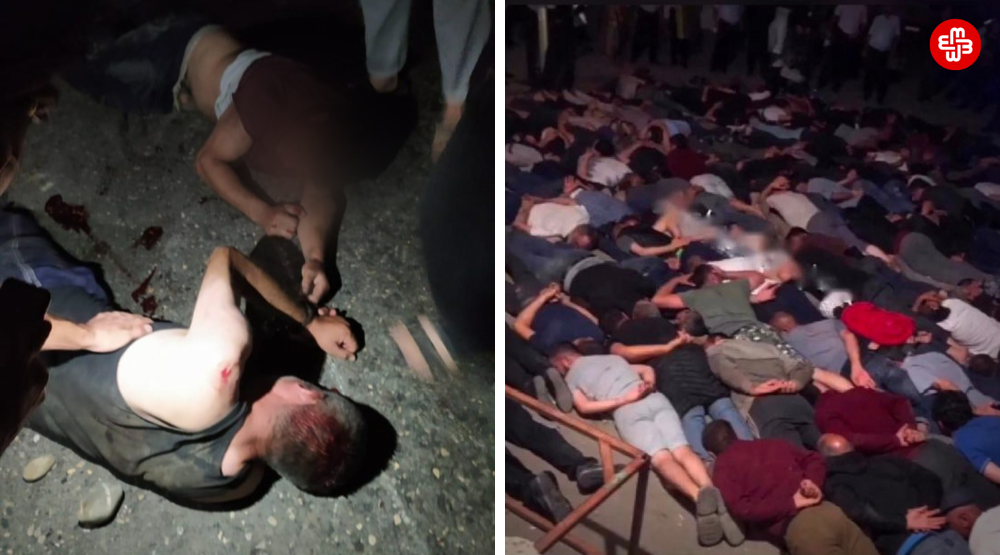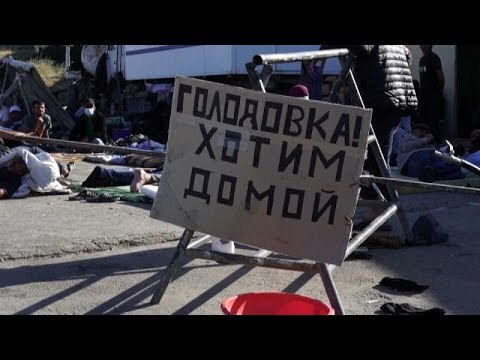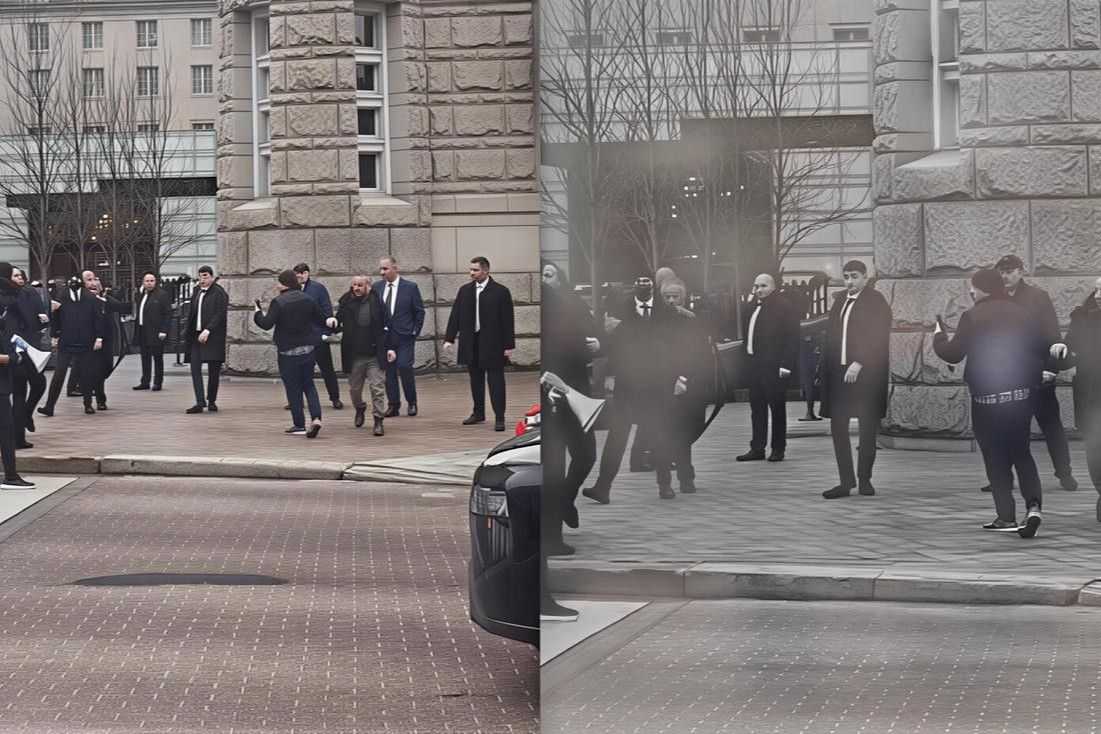
Dozens of Azerbaijanis stranded in Daghestan have clashed with police and border guards near the Russian–Azerbaijani border. Russian authorities have launched a criminal investigation into the violence.
The brawl took place on Monday evening near a temporary camp set up outside the village of Kullar to house hundreds of Azerbaijani citizens who the Azerbaijani authorities have refused to allow to return home.
A spokesperson for the Daghestan’s Investigative Committee told OC Media that at 20:30, around 400 Azerbaijani citizens left the camp and attempted to block the Kavkaz Federal Highway in protest at their situation.
They said protesters threw stones at law enforcement and refused police orders to return and that soldiers from the Russian National Guard were forced to fire warning shots in the air.
The spokesperson said that 93 Azerbaijanis citizens were detained.

On Wednesday, the Investigative Committee announced they had launched a criminal investigation against 10 Azerbaijani citizens for assaulting police and damaging police vehicles.
According to the statement, nine law enforcement officers were injured and five vehicles damaged during the clash, causing ₽400,000 ($5,700) worth of damage.
Hundreds of Azerbaijani citizens began arriving in the border regions of Daghestan in March when the COVID-19 outbreak first broke out in Russia, but only a handful have been allowed to enter Azerbaijan.
Initially they were housed by the local authorities in recreation centres, mosques, and hotels, with the Russian Ministry of Emergencies later setting up several temporary camps.
After closing their borders due to COVID-19 on 5 April, Azerbaijani authorities have allowed only a limited number of their citizens to enter through the border with Russia.
Yashar, an Azerbaijani stranded in one of the camps in Derbent District, told OC Media that the confrontation occurred because in some cases, new arrivals to the camps were being allowed to reenter Azerbaijan while others who had been waiting for months were not.
‘We heard that to be included on this list [of people allowed to cross the border] you need to pay ₽40,000-₽50,000 ($570-$720). Not everyone has that kind of money’.
‘Yesterday there were 110 people on the list, half of them are newcomers. We agree that the first thing to do is let through those whose parents die or whose wife is giving birth, but even they don’t always get on the lists’, he said.
Azerbaijan ‘sorry’
Arzu Dashdamirov, the head of the Main Criminal Investigation Department of Azerbaijan’s Interior Ministry, travelled to Daghestan on Tuesday.
Dashdamirov said that the lists of people allowed to cross the border had several shortcomings, according to Russian news agency TASS.
‘We believe that, first of all, this list should include women with children, sick people, and those who should be expelled from the Republic of Dagestan due to Russian legislation’, he reportedly said.
He also promised to convey proposals by the Daghestanian authorities to resolve the situation to the government in Azerbaijan.
Hikmet Hajiyev, Assistant to the President of Azerbaijan, said on Tuesday that he was ‘sorry’ for what had happened.
He said that Azerbaijani’s were being allowed to return weekly.
‘On 19 May, 120 people returned to the country, on 26 May, 131 people, on 2 June, 122 people, on 9 June, 130 citizens.’
‘According to this schedule, today more than 150 Azerbaijani citizens will be repatriated’, he said.
Hajiyev said that preference was being given to the elderly, sick, women and children, and families.
A spokesperson for Daghestan’s Derbent District administration told OC Media that there were now about 600 Azerbaijanis in the border camps.
Tensions among those waiting to return home have previously flared up. On 9 April — the day Azerbaijan closed its borders — 114 Azerbaijani citizen announced they had gone on hunger strike near the Yarag-Kazmalyar checkpoint demanding they be allowed to enter the country.

As a result of a telephone conversation between Russian President Vladimir Putin and Azerbaijani President Ilham Aliyev, on 18 May the first group of 100 Azerbaijanis were allowed to return.









